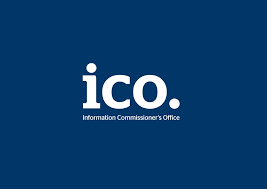Understanding the ICO: The UK’s Independent Guardian of Data Privacy

In an era where data breaches dominate headlines and personal information has become currency, understanding the ICO has never been more critical for businesses and consumers alike. The Information Commissioner’s Office stands as the UK’s independent regulator for data protection and information rights, wielding considerable power to shape how organisations handle the personal data of millions of citizens.
What is the Information Commissioner’s Office?
Established in 1984 and operating independently ever since, the ICO oversees compliance with the UK General Data Protection Regulation (UK GDPR), the Data Protection Act 2018, the Freedom of Information Act 2000, and several other pieces of legislation governing information rights.
John Edwards, who assumed the role of Information Commissioner in January 2022, has brought a distinctive regulatory approach focused on engagement and systemic change over purely punitive measures. The organisation operates with an annual budget of approximately £106 million, funded primarily through data protection fees collected from organisations that process personal information.
Core Responsibilities and Recent Enforcement
The ICO’s enforcement powers are substantial. The regulator can issue fines of up to £17.5 million or 4 per cent of annual global turnover, whichever is greater, for serious breaches of UK GDPR. Beyond financial penalties, the ICO can issue enforcement notices requiring organisations to remedy compliance failures, conduct compulsory audits, and pursue criminal prosecutions.
Recent actions demonstrate the regulator’s evolving priorities. In March 2025, Advanced Computer Software Group was fined £3.07 million following a 2022 ransomware attack that compromised the personal data of nearly 80,000 individuals, including vulnerable patients receiving home care. The attack exploited an account lacking multi-factor authentication and exposed critical NHS services to disruption for nine months.
That same quarter, genetic testing company 23andMe received a £2.31 million penalty for failing to implement appropriate security measures. A credential stuffing attack exposed the personal information of 155,592 UK residents, including sensitive genetic data that, unlike passwords, cannot be changed once compromised.
Both cases signal a clear message: multi-factor authentication is increasingly treated as a baseline requirement rather than optional best practice, particularly for organisations handling sensitive personal data.
The Public Sector Approach
Understanding the ICO requires recognising its distinctive treatment of public sector organisations. Most enforcement actions in 2024 targeted public bodies, with 27 facing regulatory action compared to just four private companies. However, the regulator typically issues reprimands rather than fines to avoid diverting public funds from essential services.
The Police Service of Northern Ireland received a £750,000 fine after accidentally leaking a spreadsheet containing workforce information, though this represented an 85 per cent reduction from the initially proposed penalty. By publishing detailed reprimands that serve as compliance case studies, the ICO creates learning opportunities while maintaining reputational consequences.
Impact on Businesses and Compliance Costs
For businesses, understanding the ICO extends beyond avoiding enforcement to recognising how data protection shapes operational possibilities. The regulator expects organisations to demonstrate “accountability” through detailed processing records, data protection impact assessments for high-risk operations, and appointed data protection officers where necessary.
The ICO has developed accessible tools to reduce compliance burdens, particularly for smaller organisations. A privacy notice generator launched in 2024 received almost 15,000 visits in its first quarter, while the Regulatory Sandbox has helped participants save between £100,000 and £499,999 in compliance costs through direct regulatory support.
Data protection fees remained unchanged from 2018 until February 2025, when they increased by 29.8 per cent. The new structure charges £52 for small organisations and charities, £78 for medium-sized entities, and £3,763 for larger corporations. While representing a substantial increase, these fees remain modest compared to potential fine exposure.
Protecting Children and Emerging Technologies
The ICO has made children’s online privacy a strategic priority. In 2024/25, the regulator reviewed 34 social media and video-sharing platforms, securing improvements from 10 platforms in areas including default privacy settings, geolocation controls, and targeted advertising. These changes impacted at least 747,000 UK children aged 3-17.
The regulator has also intensified focus on artificial intelligence. Throughout 2024, the ICO published guidance on people’s rights concerning AI, consulted on generative AI, and issued recommendations to AI developers about protecting job seekers’ personal information. This proactive approach aims to provide regulatory certainty as the technology evolves.
Online tracking represents another enforcement priority. The ICO issued a reprimand to Sky Betting and Gaming for unlawfully processing information through advertising cookies before users could accept or reject them. Some affected individuals may have been recovering gambling addicts, highlighting how seemingly technical violations can cause genuine harm.
Freedom of Information Performance
January 2025 marked the 20th anniversary of the Freedom of Information Act coming into force. The ICO handled 7,639 FOI complaints during 2024/25, closing 95 per cent within six months despite resource constraints. The regulator issued 2,192 statutory decision notices, representing a 50 per cent increase over historical averages.
The ICO has intensified scrutiny of water companies amid public concern over sewage pollution. The regulator issued decision notices to six water companies requiring disclosure of sewage start and stop times, and delivered the first Environmental Information Regulations practice recommendation to United Utilities for failing to properly handle requests.
International Cooperation and Data Flows
Brexit transformed the ICO’s international role. While the UK GDPR mirrors its European counterpart, British regulators now operate independently, creating potential for regulatory divergence. The ICO approved 16 Binding Corporate Rules applications in 2024/25, enabling organisations to establish lawful international data transfer mechanisms.
The regulator joined Global CAPE, a privacy enforcement programme spanning authorities from the United States, Australia, Canada, Mexico, Japan, and other nations. This membership strengthens the ICO’s capacity to tackle cross-border data protection issues without negotiating individual agreements with each country.
Legislative Changes and Future Direction
The Data (Use and Access) Act received Royal Assent in June 2025, modernising the ICO’s governance structure. The legislation introduces a statutory board model with a Chair and Chief Executive, replacing the single Information Commissioner structure. This change aims to enhance accountability while maintaining independence.
The Act also updates data protection law to support economic growth and innovation. The ICO responded to government requests by identifying measures supporting small businesses, making international data sharing easier, and creating regulatory certainty around AI deployment.
Key Takeaways
Understanding the ICO matters because data protection has evolved from niche concern to fundamental aspect of modern commerce and public administration. Whether booking holidays, applying for jobs, or accessing healthcare, personal data is constantly collected, analysed, and shared. The ICO serves as the institutional check on this pervasive ecosystem, ensuring convenience does not compromise privacy and autonomy.
For businesses, proactive engagement with data protection requirements is essential to avoiding costly penalties and reputational damage. For individuals, knowing an independent regulator investigates abuses provides reassurance in an increasingly data-driven world.
The challenge for the ICO is maintaining relevance as technology evolves and business models adapt. Success requires robust enforcement, the agility to anticipate emerging risks, and the wisdom to regulate without stifling innovation. In this complex landscape, understanding the ICO remains the foundation for confident navigation of data protection obligations and rights alike.








